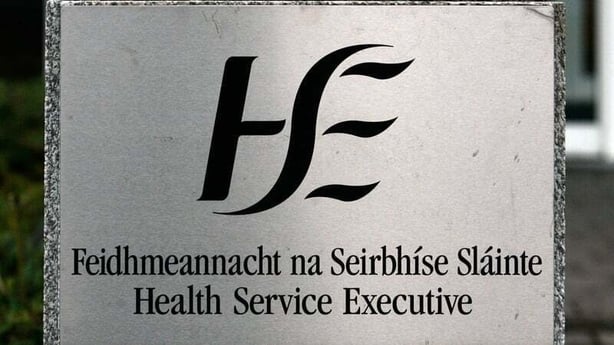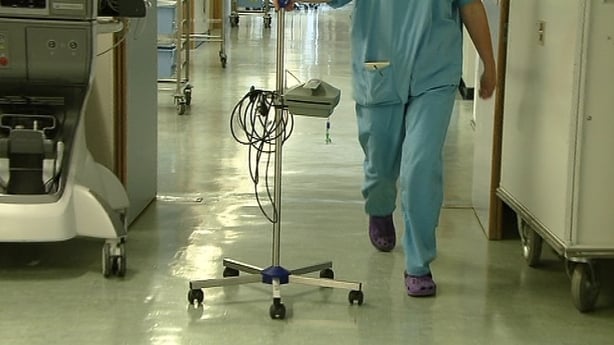There is a popular myth that the ministerial health portfolio is a poisoned chalice, which can be a career-ending post.
Some of this goes back to remarks by former holder Brian Cowen that the Department of Health was like Angola, full of unexploded landmines.
However, consider this for a moment, three of the most recent taoisigh were previously ministers for health, newly appointed Taoiseach Micheál Martin, Simon Harris, now Tánaiste, and Leo Varadkar.
Brian Cowen himself became taoiseach too, having been in health.
The failure of former minister Stephen Donnelly to get elected again may feed into the popular myth, but it's not that simple.
There is good reason to consider that while health is a very testing portfolio, well-handled, it can lead to further promotion and even the top job in government.
This makes a neat segue to consider newly appointed Minister for Health Jennifer Carroll MacNeill of Fine Gael and the key challenges she faces.
This will be the15th Minister for Health I have marked, in my role as a health journalist.

The first minister I covered was Dr Rory O’Hanlon in 1988, at a time when health received nothing near the level of media coverage it does today.
However, even in 1988, there were concerns about hospital overcrowding and a number of top-level reports were commissioned to try and tackle it.
Health is the second biggest spending department of the Government and this year it has a budget of over €25 billion, the highest sum ever allocated.
The health service, in the form of the HSE, is also a huge employer with over 130,000 staff, the largest number of employees in its history.
Those are positives.
Constant demands
However, there are familiar problems, constant demands for more staff and resources, chronic overcrowding in emergency departments and long public hospital and community waiting lists.
In mental health, there were 3,833 patients waiting to be seen in the Child and Adolescent Mental Health Services (CAMHS) at the end of last November.
Over 540 of these patients were waiting to be seen for over a year, according to the HSE response to a parliamentary question received by Sinn Féin TD Mark Ward on 15 January.

Some of this will also fall under the role of new Chief Whip Mary Butler, who also has responsibility for mental health.
However, there have been huge advances in health, with new treatments, and modern centres for specialist care and people are living longer.
An ageing and growing population is putting more pressure on the health system.
Briefing document
This weekend, Ms Carroll MacNeill will no doubt be studying a large briefing document, given to all new ministers by their department, setting out the issues in every area of their portfolio.
Department of Health Secretary General Robert Watt, along with other senior civil servants there, will also have appraised her of some of the more pressing issues ahead.
The Coalition's Programme for Government sets out the priorities for health, although as opposition parties have remarked, somewhat obliquely.
However, this will be a template for Ms Carroll MacNeill and she will have to put the meat on the bones of this policy brief, as well as setting out the immediate, medium and long-term priorities.
Her selection of special advisers and press advisor will also be very important, the former has a huge role in advising on progressing policy, and the latter is the vital link to the media, feeding the modern demands of traditional TV and radio, as well as online and social media, with the voracious appetite for content at speed.
Unions
Health has a huge profile in the media and on any given day there are major issues to address.
There will be a slew of demands from health unions, professional health organisations and opposition parties.
Already, the Irish Medical Organisation has said that the new minister must deliver on funding for more capacity and staff in health. It is a familiar theme.
The demands in health are endless and all cannot be met, so the balancing act is to deliver what is needed, on a priority basis.

Ms Carroll MacNeill has wide experience coming to this new post.
She was Minister for State for European Affairs and Defence and Minister of State at the Department of Finance.
She was elected as a TD for the Dún Laoghaire constituency in the 2020 General Election.
Ms Carroll MacNeill holds a PhD in public policy, where her research interest was in political institutions and the judiciary.
Previously, she worked as a solicitor and barrister and is a very able speaker.
Her appointment to health was well flagged and the wide perception that she is an ambitious person.
All of these attributes will be called upon in the health portfolio.
Reading into a new portfolio takes a lot of time and there will also be unexpected issues that arise which must be dealt with.
A good working relationship with her Secretary General will be key, as will a good working relationship with Health Service Executive CEO Bernard Gloster.
This year alone, there will be big topics on the health agenda.
New Children’s Hospital
Will the new National Children’s Hospital be completed as planned in June and how much more money will the new Government have to provide for its completion and commissioning?
How can the major overcrowding at University Hospital Limerick’s emergency department be eased in the short and long term?
Most days it figures as the outlier, with often over 100 patients waiting. Will the mid-west region get a commitment later this year to a second emergency department?
A study reported in the British Medical Journal this week says that patients who spend more than 12 hours in hospital emergency departments are more than twice as likely to die within 30 days, than those seen within two hours.

This is even after a wide range of socio-demographic and clinical factors were accounted for.
National hospital waiting lists are reducing, as are the time periods for long waiters, but overall, they currently stand at over 808,000 patients, in a country with over 5 million people.
Strike action looming
Industrial unrest also looms, with a number of health unions planning action over staffing, in particular the controversial HSE Pay and Numbers Strategy, which they view as an embargo or cap by another name.
The industrial action threat includes the Irish Nurses and Midwives Organisation and the Fórsa Health and Welfare Division, both of which represent over 72,000 health staff.
Other health unions, the Connect Trade Union and the Medical Laboratory Scientist Association have also voted for action.
Separately, SIPTU's Health Division is balloting 5,000 members working in Section 39 organisations, due to what they say is a failure of the last government to honour a pay agreement struck at the Workplace Relations Commission in October 2023.
Section 39 staff are in the broader voluntary and community sector, not directly run by the HSE but funded through agreements.
During Ms Carroll MacNeill's term, the report of the Covid-19 evaluation (inquiry) will be published.
The final report from Professor Anne Scott is due in around 12-18 months and will shine a spotlight on many government departments and agencies, but none as key as health.
HRT commitment
One immediate issue that arose was a commitment from the last government to introduce free Hormone Replacement Therapy (HRT) products in January.
The last Budget put €20m aside for the scheme.
However, the Irish Pharmacy Union has said it has not received details of the scheme, and it appears that it needs secondary legislation, so details have still to be ironed out.
Under the planned scheme, the full cost of medicine would be covered, but women would still have to pay for a GP visit and prescription as well as pharmacy dispensing fees.
This and many other issues are part of the busy in tray, for the new Minister for Health.







